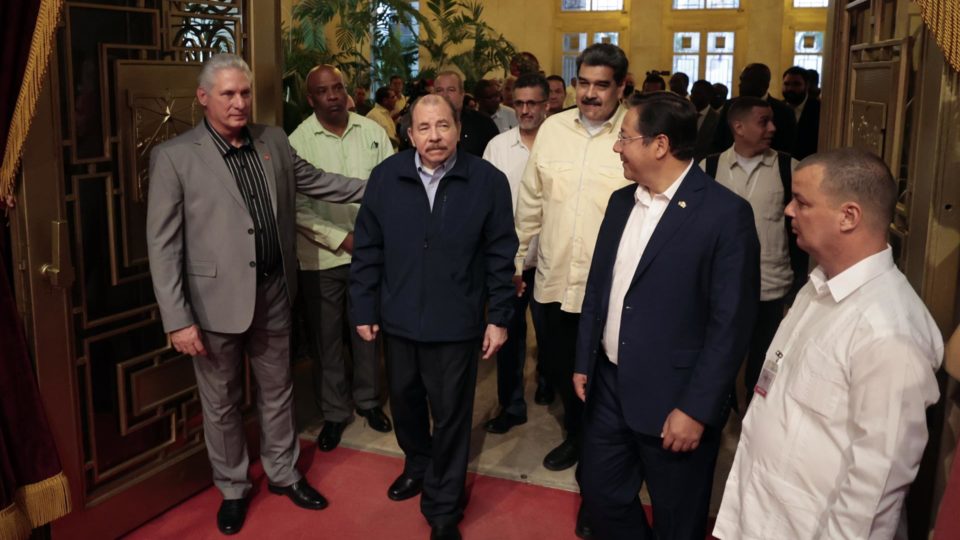Nicaragua’s president Daniel Ortega has again attacked the Catholic Church and the Vatican, calling the late Pope John Paul II a “dictator and tyrant” in a televised speech on Thursday (20).
Ortega recalled John Paul II’s first visit to Nicaragua on March 4, 1983, just a few years after the Sandinistas first seized power in the country.
During a mass in a square in the capital, Managua, the Pope had to ask for silence during the Eucharist for government supporters shouting, “We want peace”.

According to the Nicaraguan dictator, the pontiff was reportedly angered by the cry “We want peace” because mothers of Sandinistas who died in the civil war of that decade asked for prayer.
“He didn’t do it [the prayer]; he got angry and shouted, ‘Silence!’ like a good dictator, like a good tyrant,” Ortega said.
The Sandinista dictator claimed, without providing evidence, that John Paul II went to Nicaragua on that occasion “with a mentality distant from the essence of Christ and Christianity, manipulated by the [then-US President] government of Ronald Reagan.”
Karol Wojtyla, John Paul II’s baptismal name, was in Nicaragua for the first time in March 1983.
On that occasion, in addition to calling for silence for the Sandinista crowd, he publicly rebuked the late Trappist poet and priest Ernesto Cardenal for mixing religion with revolution.
“BIG DARK NIGHT”
According to the article “The shameful ambush of the Sandinistas against Pope John Paul II,” by journalist Alberto García Marrder, who covered that visit to Nicaragua for EFE news agency, “it was repudiating, shameful, cruel and grotesque what His Holiness suffered in the square.”
“A crowd of Sandinistas desecrated an open-air Mass of Pope John Paul II at the high point of the celebration,” he reported.
Marrder recalled that the Pope, surprised by this challenge, replied in an already hoarse voice, “The Church also wants peace,” but to no avail because the shouting continued.
“His Holiness enraged the crowds when departing from his official speech and referring to Sandinism; he recalled the passage from the Gospel of Matthew 7:15-27: ‘Beware of false prophets. They dress like sheep, but inside, they are fierce wolves,'” Marrder said.
Nicaragua, in 1983, was in the midst of a civil war between the Contras, financed by the United States, and the Sandinistas, allied with the former Soviet Union and Cuba.
For Ortega, John Paul II responded to the crowd 40 years ago in a “non-Christian” way.
“After leaving Nicaragua, a worldwide scandal happened because he said we had disrespected him by shouting ‘we want peace,'” the Sandinista dictator added.
John Paul II visited Nicaragua for the second time in February 1996, when Violeta Barrios de Chamorro (1990-1997) was in power.
At the time, he described his first visit to the country as a “big dark night.”
“Here we have another famous expression indicating his political, ideological, and not Christian preference,” Ortega commented.
CRITICISM OF THE VATICAN
Regarding the Vatican, Ortega said that “it is just another state in the world, which has become just another interventionist state, at the service of the imperialists of the world.”
“There is no democracy there. [The Vatican] has a vertical line of command, just like in the time of the Roman emperors. Just like the Roman emperors did, just like Nero, Caligula,” he said.
The Nicaraguan government’s relations with the Catholic Church are currently experiencing moments of great tension, marked by the expulsion and imprisonment of priests and the banning of religious activities.
Ortega has called priests, bishops, and cardinals a “mafia.”
At the same time, Pope Francis said the Sandinista government is a “gross dictatorship” in a recent interview with the news site Infobae, pointing to “an imbalance in the person who commands” the country.
With information from EFE

